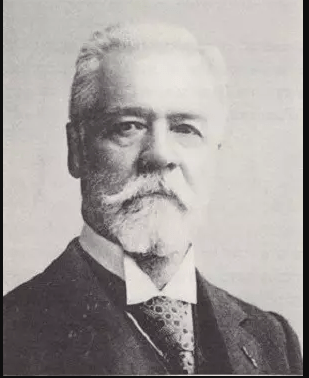Master the art of leadership: Dive deep into Henri Fayol's 14 principles for ultimate managerial success.
Henri Fayol's insightful principles. This comprehensive guide delves into each principle, offering practical applications and real-world examples to empower effective leadership. Boost efficiency, optimize resources, and cultivate a thriving team culture – it all starts with Fayol's wisdom.
Imagine navigating a complex business landscape without a compass. That's where effective leadership comes in, serving as the guiding force that propels organizations towards success. While trends and technologies may evolve, some fundamental principles of management remain timeless, offering invaluable insights for leaders across industries.

Enter Henri Fayol, a visionary French industrialist who, over a century ago, laid the foundation for modern management practices. Through his years of experience, Fayol identified 14 key principles that continue to resonate with leaders today. By incorporating these principles into your management style, you can unlock the full potential of your team and steer your organization towards a brighter future.
1. Division of Work:
- By dividing tasks based on skills and experience, organizations unlock the full potential of their workforce.
- Imagine a master chef chopping vegetables while the sous-chef handles the delicate sauces – synergy at its finest!
2. Authority and Responsibility:
- Authority grants managers the power to command, while responsibility holds them accountable for outcomes.
- Think of a captain navigating a ship – clear authority ensures swift action, while responsibility keeps the crew and passengers safe.
3. Discipline:
- Discipline ensures adherence to rules and regulations, maintaining a work environment conducive to productivity and quality.
- Just as a well-rehearsed orchestra produces beautiful music, discipline in the workplace yields exceptional results.
4. Unity of Command:
- One boss, one voice. This principle eliminates conflicting orders and confusion, streamlining communication and decision-making.
- Picture a football team with multiple quarterbacks – chaos on the field! Unity of command keeps everyone focused and moving in the same direction.
5. Unity of Direction:
- All departments and individuals must be aligned towards a common goal, ensuring coordinated efforts and maximized impact.
- Like a flock of birds migrating south, unity of direction propels the organization towards its shared vision.
6. Subordination of Individual Interests to the General Interest:
- Employees must prioritize the organization’s success over individual gain, fostering a spirit of collaboration and shared purpose.
- Imagine a single bee deviating from the hive – the honey production suffers. Likewise, individual interests must serve the greater good.
7. Remuneration:
- Fair pay for fair work. Adequate compensation motivates employees, attracts top talent, and boosts morale. Remember, a happy and valued workforce is a productive workforce.
- Think of a gardener nurturing a plant – proper nourishment leads to healthy growth.
8. Centralization and Decentralization:
- Finding the sweet spot. The degree of decision-making power centralized in management depends on the specific context.
- A flexible approach, balancing control with employee autonomy, fosters agility and innovation.
- Imagine a sculptor striking a balance between precise strokes and spontaneous creativity.
9. Scalar Chain:
- A clear line of authority. A defined hierarchy establishes communication channels and facilitates efficient decision-making.
- Think of a chain of command in the military – it ensures swift responses and coordinated action.
10. Order:
- A place for everything, and everything in its place. Orderliness minimizes waste, improves efficiency, and promotes a safe and positive work environment.
- Imagine a messy kitchen – cooking becomes a nightmare! Order in the workplace streamlines operations and boosts productivity.
11. Equity:
- Fairness is the cornerstone of trust. Managers must treat employees with respect and impartiality, fostering a sense of justice and belonging.
- Think of a judge upholding the law with fairness and objectivity.
12. Stability of Tenure of Personnel:
- Experience is a valuable asset. High employee turnover disrupts workflows and erodes knowledge.
- Investing in employee retention fosters loyalty, commitment, and institutional knowledge.
- Imagine a seasoned gardener tending the same plants for years – expertise blossoms with time.
13. Initiative:
- Encourage independent thinking. Empowering employees to take initiative sparks creativity, problem-solving, and ownership.
- Think of a scientist conducting independent research – breakthroughs often arise from individual initiative.
14. Esprit de Corps:
- Team spirit fuels success. Cultivating a sense of camaraderie, mutual respect, and shared purpose fosters collaboration, motivation, and resilience.
- Imagine a sports team cheering each other on – their collective spirit fuels victory.
Conclusion:
Henri Fayol’s 14 principles are more than just historical relics; they’re valuable tools for modern leaders seeking to navigate the complexities of today’s business world. By incorporating these principles into your leadership style, you can cultivate a more efficient, productive, and thriving organization, ready to face any challenge with confidence. So, remember, leadership excellence is not a secret, it’s a choice – a choice to embrace the timeless wisdom of Henri Fayol.
Tagged business, decisionmaking, efficiency, growth, henrifayol, leadership, management, organization, success, teamwork, Work
